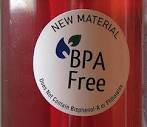 Loading... Please wait...
Loading... Please wait...- Home
- GdnGrl Blog
- New Findings on Safety of BPA and BPA Alternatives
New Findings on Safety of BPA and BPA Alternatives
Posted by Kristin Miller on 6th Mar 2014
 I was listening to On Point on NPR this week and a fascinating segment came on about BPA - an estrogen-mimicking chemical that is found in many plastics. Since I am an avid follower of anything newsworthy about BPA and plastics and chemicals that pose potential threats to our health, I wanted to listen to the experts discussing the newest findings and concerns. It is a great podcast if you have time. If not, here are some key takeaways that I thought were interesting:
I was listening to On Point on NPR this week and a fascinating segment came on about BPA - an estrogen-mimicking chemical that is found in many plastics. Since I am an avid follower of anything newsworthy about BPA and plastics and chemicals that pose potential threats to our health, I wanted to listen to the experts discussing the newest findings and concerns. It is a great podcast if you have time. If not, here are some key takeaways that I thought were interesting:
- A recent study has shown that BPA has been linked to prostate cancer (click here for more information)
- BPA is found in far more than "hard plastics" - it is also in linings of canned food, most cash register receipts, water supply pipes and even dental sealants (and yes, that means our children have BPA in their mouths...)
- The new "BPA-free" plastics are STILL dangerous - they also demonstrate "estrogen activity".
- According to a fascinating article in Mother Jones, there was a recent study by CertiChem and George Bittner, published in the National Institutes of Health journal that showed that "almost all commercially available plastics that were tested leached synthetic estrogens—even when they weren't exposed to conditions known to unlock potentially harmful chemicals, such as the heat of a microwave, the steam of a dishwasher, or the sun's ultraviolet rays. According to Bittner's research, some BPA-free products actually released synthetic estrogens that were more potent than BPA.". That, to me, was eye popping information!
- Not surprisingly, the FDA is still saying that BPA and other similar chemicals are safe in low doses based on their research. What is interesting is that the Mother Jones article points out that there are serious concerns with the validity of the FDA supported studies. The author also indicated that the only studies that have shown that BPA is safe have been funded by the chemical companies or industry organizations, whereas studies completed by academic scientists have shown there to be significant health concerns.
So much to think about! At our house we try to keep plastics to a minimum and we don't wash them in the dishwasher or heat them - but that doesn't seem to be enough. We all have to weigh the costs and benefits to using plastics. If only we could just trust that what we are buying is safe. Will that day come? I thought it was very interesting to hear Tom Ashbrook basically ask if we are going to look back at this time in our history and see that we were slowly poisoning ourselves, like we now look back at the Romans drinking from lead cups. Yipes.




